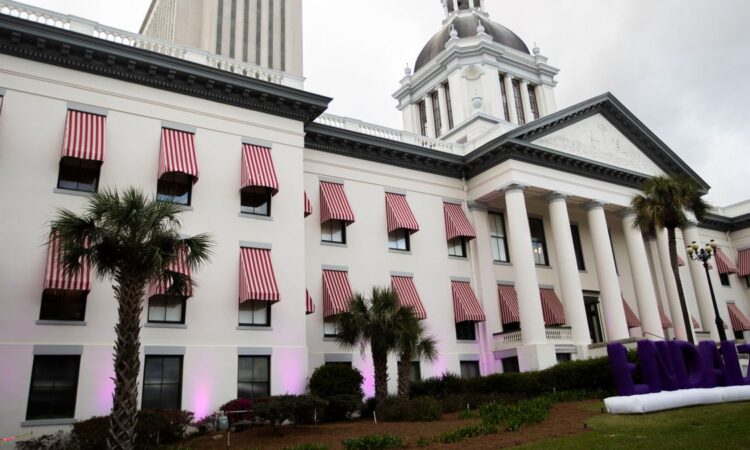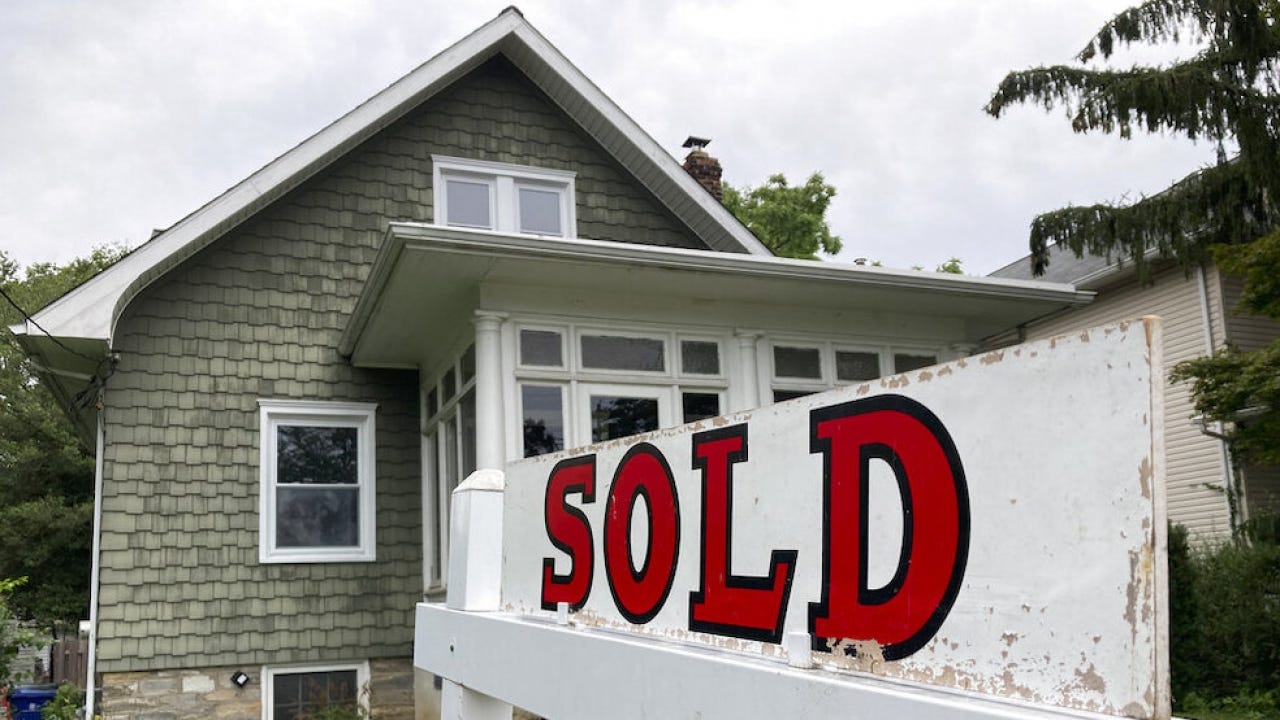
Lawmakers repeatedly pointed to being deluged with complaints from Floridians about the burden of property taxes.

Soaring property values now turning into big tax bills
With home values surging since the pandemic, homeowners nationwide are now receiving new, bigger property tax bills as a result.
Scripps News
- Florida cities and counties are defending their use of increased property tax revenue against criticism from state Republicans.
- Local governments assert the extra funds are used for essential public services demanded by residents, not on wasteful spending.
- Gov. Ron DeSantis is pushing for a constitutional amendment to overhaul property taxes, with the House exploring options.
Florida cities and counties pushed back with data against a steady drumbeat of criticism from Gov. Ron DeSantis and many Florida Republicans who accuse them of lavishly misusing a rise in property tax collections.
In the second day of hearings by a special House committee, representatives of local governments acknowledged that tax revenue has climbed sharply in recent years, powered by increased home values.
But the cascade of dollars isn’t being frittered away on high salaries or dubious programs, local government officials insisted. Instead, it’s going to public services demanded by residents.
“One person’s waste is another person’s amenity,” said Casey Cook, chief of legislative affairs at the Florida League of Cities, pointing to a dilemma coloring the debate over property taxes, certain to continue through the legislative session beginning in January.
Lawmakers repeatedly pointed to being deluged with complaints from Floridians about the burden of property taxes. It’s an element in what several legislators said was a feeling among many voters that the state has become unaffordable.
Rep. Toby Overdorf, R-Palm City, co-chair of the House Select Committee on Property Taxes, wrapped up two days of meetings by asking lawmakers Sept. 23 for a show of hands if any knew of local governments where property tax collections actually dropped this year.
Not many hands went up.
Mic drop moment
“So, in 411 municipalities and 67 counties, we had roughly three that saw ad valorem (property taxes) go down,” Overdorf said.
Overdorf’s mic drop moment ended more than seven hours of testimony this week from state economists, agency analysts, city managers, county officials and representatives of both the Florida Association of Counties and the cities’ league.
An official with the state’s Department of Government Efficiency (DOGE), modeled after the federal cost-slashing agency once headed by billionaire Elon Musk, also gave an update of its recent actions.
Since beginning highly publicized site visits in July, DOGE has gathered taxing-and-spending information from seven counties and five cities, said Leda Kelly, also DeSantis’ policy and budget director. She told lawmakers that analysis of the local governments – most of which are Democratic-leaning – is still ongoing.
DeSantis has been calling for a proposed constitutional amendment on the ballot next year to revamp property taxes, sometimes calling for outright repeal of the levy. The House has joined in on the effort, while the Senate has so far remained on the sidelines of the debate.
Overdorf and co-chair Rep. Vicki Lopez, R-Miami, said a range of possible approaches will be considered for the ballot, or proposed as more simple law changes.
Wide range of approaches will be studied
First-time homebuyers, seniors, renters and owners of rental property are among the cohorts they’ll look to satisfy. But keeping adequate dollars flowing to cities and counties, through property levies or fees, also is part of the mission, Overdorf and Lopez said.
Across hours of commentary and reams of data points about property taxes, the state’s more than two-dozen exemptions, and tax-reduction mechanisms like Save Our Homes, it’s clear that lawmakers face a challenge in crafting some kind of proposed money-saving solution for the ballot.
Satisfying voters also will be a task. At least 60 percent of voters must approve the amendment for it to become law.
“They want police, they want fire, some of them want parks, but the question … is what do the residents want and desire, and what are they willing to pay for?” Lopez said.
It’s important that “people understand that any reduction in property taxes will impact the level of services they receive,” she added.
At the county level, presentations by Davin Suggs, deputy executive director of the state’s counties association, showed that property tax collections soared almost 34% between 2021 and 2024.
The data, though, also showed that while only one county had increased its tax rate, or millage, during that time, spending has risen at a slower rate – up just under 20%. Public safety ate up the biggest share of county spending, 27% of the $60.2 billion that went out statewide.
“Cost drivers are not staying static at all,” Suggs said, pointing out that government costs have increased through inflation, equipment prices, maintenance and vendor expenses.
Most of the city and county officials who testified before the House panel said their governments support the move to ease the tax burden. But many said answers are elusive.
“I don’t know if there’s a one-size-fits-all approach,” said Sarah Campbell, city manager of Fernandina Beach.
John Kennedy is a reporter in the USA TODAY Network’s Florida Capital Bureau. He can be reached at jkennedy2@gannett.com, or on X at @JKennedyReport.




